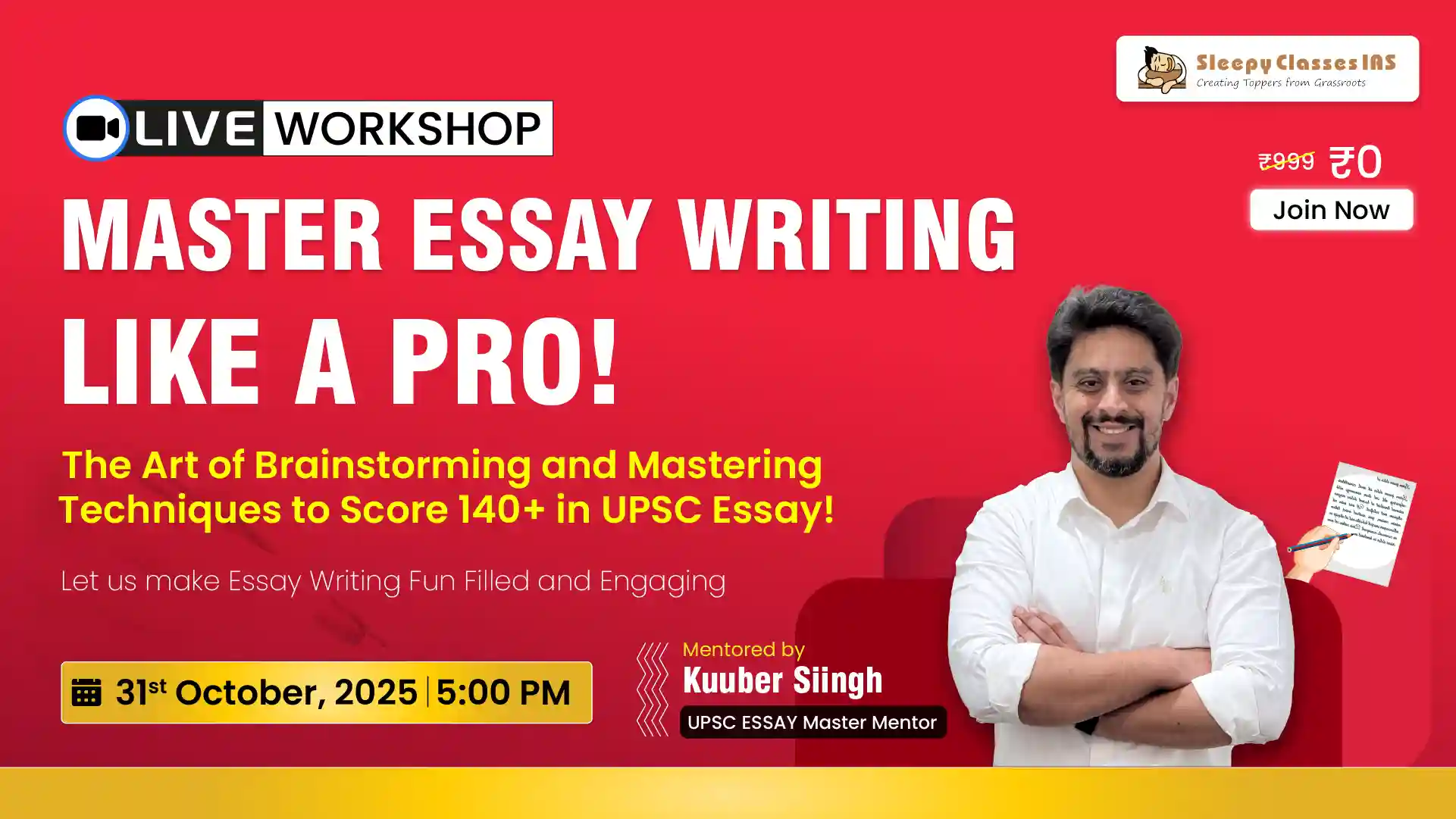Experiencing failure in the UPSC exam can be disheartening, given the immense effort and time invested in preparation. However, it’s essential to view failure not as a setback but as a learning experience. This perspective can help maintain self-esteem and motivation, which are crucial for future attempts. This article explores how to bounce back after an unsuccessful UPSC attempt, providing strategies and insights to turn failure into a stepping stone towards success.
Key Takeaways
- Acknowledge and process your emotions to build emotional resilience.
- Analyze your previous attempt to identify weak areas and improve study techniques.
- Create a new, realistic study plan that incorporates feedback and balances different subjects.
- Seek support from family, friends, mentors, or professional counselors to stay motivated.
- Maintain physical and mental health through exercise, mindfulness, and healthy eating habits.
Understanding the Emotional Impact of Failure
Experiencing failure in the UPSC exam can be a tough pill to swallow. It’s important to recognize that failure can either derail you or help you find a clearer path forward. What you choose is entirely up to you. Here are some ways to cope with the emotional impact of failure.
Analyzing Your Previous Attempt
After an unsuccessful UPSC attempt, it’s crucial to take a step back and thoroughly analyze your performance. This process will help you understand what went wrong and how you can improve in your next attempt. Analyzing your performance after each test is essential to identify areas for improvement and revise accordingly.
Creating a New Study Plan
After an unsuccessful UPSC attempt, it’s crucial to devise a new study plan that addresses past shortcomings and sets a clear path forward. Revise your study materials, create a meticulous study plan, and focus on strengthening fundamental concepts. Practice extensively, emphasizing current affairs and analytical skills.
Seeking Support and Guidance
Navigating the UPSC journey can be challenging, especially after an unsuccessful attempt. Encouragement from family members can significantly boost an aspirant’s morale. Simple acts of support, like affirming their efforts and believing in their potential, can reignite an aspirant’s determination to succeed.
Mentorship programs offer structured guidance and can provide valuable insights into the preparation process. Experienced mentors can help you identify your weak areas and suggest effective strategies to improve.
Professional counseling can also be beneficial. It helps in managing stress and anxiety, ensuring that you maintain a positive outlook throughout your preparation. Embracing anxiety as part of the journey can make the process more manageable.
Maintaining Physical and Mental Health
Maintaining both physical and mental health is crucial for UPSC aspirants. Physical activity is scientifically proven to release mood-boosting endorphins and alleviate stress. Incorporate activities like yoga, zumba, dancing, running, or aerobics into your daily routine to feel more confident, active, and motivated.
Mindfulness and meditation are essential for keeping your mind calm and focused. Practicing meditation and yoga can help you avoid distractions and build a strong mental foundation. This way, thoughts of failure will fade away, allowing you to concentrate on your goals.
Healthy eating habits are equally important. A balanced diet provides the necessary nutrients to keep your body and mind in optimal condition. Avoid junk food and focus on consuming fruits, vegetables, whole grains, and lean proteins.
Building a healthy mind fosters clarity, resilience, and sustained focus during rigorous preparation.
Staying Motivated and Focused
Staying motivated and focused during UPSC preparation can be challenging, especially after an unsuccessful attempt. However, it’s crucial to maintain a positive mindset and keep pushing forward. Here are some strategies to help you stay on track:
Visualizing Success
Visualizing your success can be a powerful motivator. Take a few moments each day to imagine yourself achieving your goals. This mental exercise can boost your confidence and keep you focused on your objectives. Seeing yourself succeed can make the journey feel more attainable and less daunting.
Celebrating Small Wins
It’s important to recognize and celebrate small achievements along the way. Whether it’s completing a difficult chapter or scoring well on a mock test, acknowledging these victories can provide a much-needed morale boost. Create a list of milestones and reward yourself when you reach them. This practice can help you stay motivated and maintain a positive outlook.
Avoiding Burnout
Burnout is a common issue among UPSC aspirants. To avoid it, make sure to take regular breaks and engage in activities that you enjoy. Balancing study time with leisure activities can help you recharge and stay focused. Remember, it’s not just about studying hard but also about studying smart. Taking care of your mental health is just as important as your academic preparation.
Staying motivated requires a combination of self-belief, strategic planning, and regular self-care. By visualizing success, celebrating small wins, and avoiding burnout, you can maintain your focus and keep moving forward in your UPSC journey.
Utilizing Resources Effectively
Effectively utilizing resources can significantly enhance your UPSC preparation. Online courses and materials offer a wealth of information that can be accessed anytime, providing flexibility in your study schedule. Joining study groups can also be beneficial, as they offer a platform for discussion, doubt clearing, and sharing of study materials. Regular self-assessment is crucial to track your progress and identify areas that need improvement. By leveraging these resources, you can create a comprehensive and efficient study plan.
Utilizing resources effectively is crucial for success in any competitive exam, especially the UPSC. At Sleepy Classes, we provide comprehensive study materials, expert guidance, and personalized mentorship to help you make the most of your preparation time. Join our UPSC 2025 programs today and start your journey towards achieving your IAS dreams. Visit our website to explore our courses and enroll now!
Conclusion
Experiencing failure in the UPSC exam is undeniably challenging, but it is crucial to view it as a stepping stone rather than a setback. Embracing failure allows you to refine your strategies, build resilience, and ultimately enhance your preparation for future attempts. Remember, each unsuccessful attempt is an opportunity to learn and grow, bringing you one step closer to your goal. By maintaining a positive mindset and leveraging the support of family, mentors, and peers, you can transform failure into a powerful motivator. Stay committed, keep refining your approach, and believe in your potential to succeed in the UPSC examination.
Frequently Asked Questions
What should I do immediately after failing the UPSC exam?
Take some time to acknowledge your feelings and understand that it’s okay to feel disappointed. Reflect on your preparation and identify areas for improvement before creating a new study plan.
How can I identify my weak areas in the UPSC preparation?
Review your previous attempt thoroughly, including your answer sheets and feedback from mentors. Compare your performance in different sections to pinpoint where you need more focus.
Is it necessary to join coaching classes after failing the UPSC exam?
It’s not mandatory, but coaching classes can provide structured guidance and support. Evaluate your self-study habits and decide if professional coaching could help you address your weak areas more effectively.
How can I stay motivated during my second attempt at the UPSC exam?
Set realistic goals, visualize your success, and celebrate small achievements along the way. Joining study groups and seeking support from family and friends can also help maintain motivation.
What role does physical and mental health play in UPSC preparation?
Maintaining good physical and mental health is crucial. Regular exercise, mindfulness practices, and a balanced diet can enhance your concentration, reduce stress, and improve overall well-being.
How can I effectively use online resources for UPSC preparation?
Utilize online courses, join study groups, and participate in webinars. Regularly assess your progress through mock tests and use feedback to continuously improve your preparation strategy.





